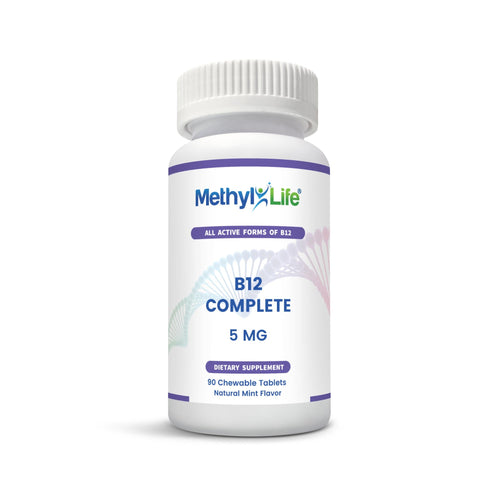What is Methylcobalamin?
Methylcobalamin is one of the two natural and bioactive coenzyme forms of vitamin B12 (the other is adenosylcobalamin). It is the most abundant form in human plasma2 and is also present naturally in foods.
Injectable methylcobalamin is no longer available in the US3. Oral forms are widely available as prescription or OTC. l
Methylcobalamin is synthesized by probiotic bacteria4, including Propionibacterium freudenreichii sbsp shermanii, or certain strains of lactobacilli, such as Lactobacillus lechmanii.
Methylcobalamin is the principal form of circulating vitamin B12 and can cross the blood-brain barrier5 without biotransformation. It is often preferred over cyanocobalamin6, a synthetic B12 compound which occurs only in trace amounts in the body due to cyanide from smoking or other sources.
Methylcobalamin is essential for the normal metabolism of folate. Without methylcobalamin, folate cannot be used effectively by the body, which can lead to B12 deficiency, anemia, nerve damage, disruptions in cell division, and more.








